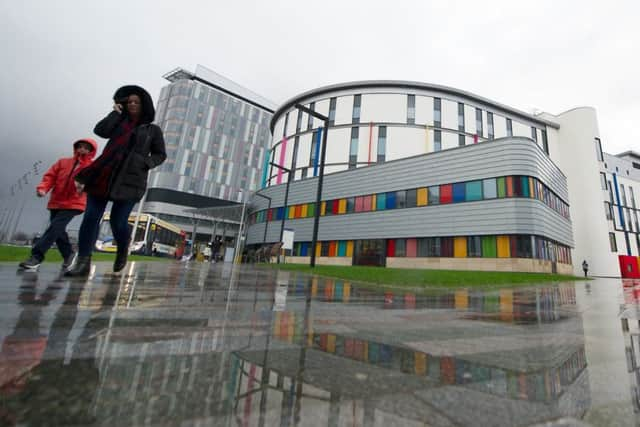The scandal of hospital infections – leader comment
A hospital-acquired infection has long been recognised as a potential hazard given the presence of large numbers of sick people, who may either have an infection or be more vulnerable to one because their immune system is suppressed as a result of their condition.
Florence Nightingale because famous as the founder of modern nursing partly because she realised the importance of hygiene in hospitals during the Crimean War, more than 160 years ago.
Advertisement
Hide AdAdvertisement
Hide AdSo the death of a ten-year-old boy – one of seven from hospital-acquired infections in the NHS Greater Glasgow and Clyde area since January – from a fungal infection caused by pigeon droppings inside the Queen Elizabeth University Hospital in Glasgow was a shocking lapse in good practice.


And the recent discovery of pigeons roosting in a public part of the Vale of Leven Hospital in Alexandria suggests the problem is not an isolated one.
Now the Scottish Parliament’s Health and Sport Committee, which is carrying out an inquiry into hospital infections, has written to Health Secretary Jeane Freeman to express concern about the lack of a “proactive approach” to detecting infections. Lewis Macdonald MSP, the committee’s convener, said: “Although the evidence shows that the prevalence of health problems acquired as a consequence of the healthcare environment in Scotland is relatively low, the committee’s inquiry has shown there are several areas of concern. Most crucially, it is clear the current monitoring and surveillance methods are not adequate.”
He urged Freeman to take “swift action” in order to ensure hospitals were catching infections as early as possible “to prevent outbreaks and reduce risk to patients to an absolute minimum”.
It goes without saying that there is absolutely no excuse for allowing wild birds to nest inside a hospital. They may be large buildings but NHS managers need to be confident that their hospitals are secure and in good repair. Worryingly, a 2017-18 Audit Scotland report found an £889m backlog of repairs in the whole of the NHS estate, suggesting the problems may be getting out of hand.
Ensuring infections are dealt with quickly is also, as the committee points out, crucial. The NHS has been struggling in recent years but this is really basic, fundamental stuff. Or it should be.
